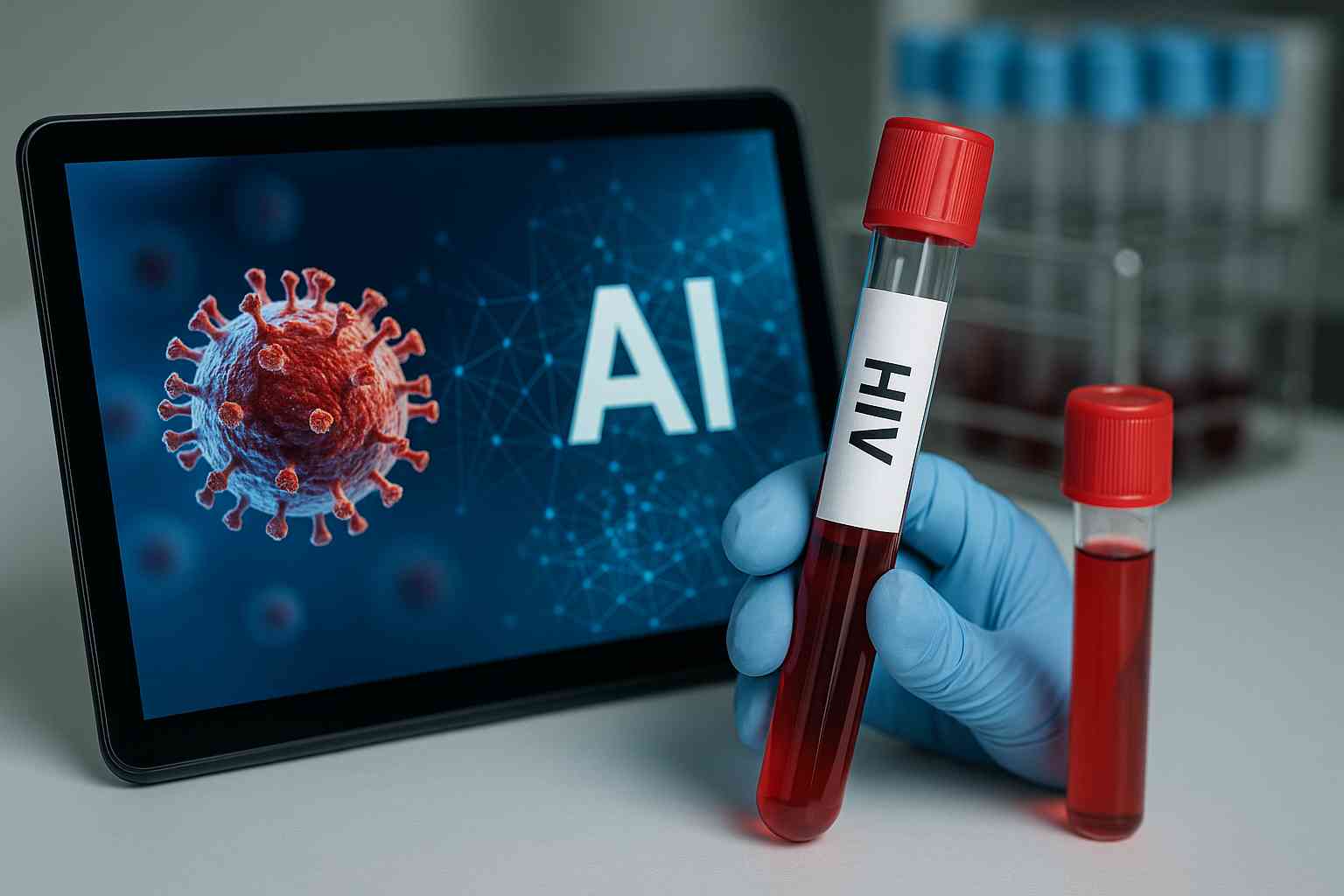Can artificial intelligence finally help us end the HIV epidemic? As AI rapidly transforms medicine, researchers are now applying this powerful technology to one of the world’s most persistent health challenges. From predicting transmission hotspots to accelerating vaccine development, AI in HIV prevention is no longer theoretical—it’s driving real-world progress toward a cure.
Table of Contents
- How AI Is Changing HIV Research
- Predicting and Preventing HIV Before It Spreads
- Accelerating HIV Vaccine and Cure Discovery
- The Role of Equity and Bias in AI-Powered HIV Tools
- How You Can Stay Informed and Protected
How AI Is Changing HIV Research
Artificial intelligence is revolutionizing biomedical science—and HIV research is no exception. By analyzing massive datasets from clinical trials, genomic research, and public health records, AI can uncover patterns that would take years for humans to detect. These insights are now being used to develop more targeted prevention strategies, personalized treatment plans, and even early-stage cure protocols.
According to a 2024 report from UNAIDS, the integration of AI in global HIV efforts has the potential to reduce new infections by identifying trends in real-time and optimizing interventions for at-risk populations. That means quicker responses, smarter funding, and fewer lives lost.
Predicting and Preventing HIV Before It Spreads
One of the most exciting applications of AI in HIV prevention is predictive modeling. Public health agencies are now using machine learning to forecast where outbreaks are likely to occur based on behavioral, geographic, and socioeconomic data. For instance, algorithms can detect community-level changes—like reduced access to PrEP (pre-exposure prophylaxis) or rising STI rates—that may signal increased transmission risk.
Mobile health apps are also beginning to incorporate AI to deliver personalized risk assessments. Some platforms can now recommend HIV testing schedules, identify safer sex strategies, and suggest nearby clinics—all based on a user’s activity and profile data. These tools empower users while alleviating pressure on overburdened health systems.
AI and Contact Tracing Innovation
AI is even reshaping how contact tracing is performed. Instead of relying solely on manual tracking, machine learning models can help estimate likely transmission pathways and identify clusters in real time. These advanced tools allow health departments to act swiftly and contain outbreaks more efficiently.
Accelerating HIV Vaccine and Cure Discovery
For decades, the holy grail of HIV research has been a vaccine or cure. Now, AI is speeding up this race in ways that were once unimaginable. Using deep learning, scientists can analyze billions of protein interactions, simulate immune responses, and design vaccine candidates much faster than traditional methods.
For example, Google DeepMind’s AlphaFold protein-folding AI has been instrumental in mapping HIV proteins that are critical for vaccine targeting. This capability shortens drug development timelines and improves the precision of experimental therapies.
Similarly, researchers at the National Institutes of Health (NIH) are exploring AI-driven CRISPR models to investigate HIV latency and potential “kick-and-kill” strategies. These emerging treatments aim to eradicate dormant virus cells that evade current antiretroviral therapies.
The Role of Equity and Bias in AI-Powered HIV Tools
While the technology is promising, it also comes with challenges. AI is only as good as the data it’s trained on. If datasets lack diversity or represent historical biases, AI tools can unintentionally reinforce disparities in HIV care—particularly among Black, Latino, LGBTQ+, and low-income communities who are disproportionately affected by the virus.
Equity must be a guiding principle in the design, testing, and deployment of AI in HIV prevention. That includes transparent data practices, inclusive research cohorts, and safeguards to prevent algorithmic discrimination. Public health experts emphasize that community input should be central to AI development efforts, not an afterthought.
Global Collaboration and Regulation
Thankfully, international bodies are beginning to recognize the ethical implications. The newly launched Global Commission on AI & HIV, led by The Lancet, aims to develop guidelines that ensure AI tools support—not harm—public health goals. As part of this mission, partnerships with community-based organizations and health equity advocates are growing.
How You Can Stay Informed and Protected
AI is changing how we fight HIV, but prevention still starts with awareness. Stay updated by following organizations like CDC HIV and Healthcare.pro for the latest on PrEP access, testing, and new treatment breakthroughs. Ask your provider if any AI-powered tools or apps are available in your area that can help you manage your health more proactively.
For those living with HIV, AI-based apps that track medication adherence, mental health, and symptom changes are increasingly available. These digital tools are not a replacement for medical advice but can serve as valuable allies in day-to-day care.
Conclusion
AI in HIV prevention and cure research is not just futuristic—it’s happening now. From predicting outbreaks to designing next-gen therapies, artificial intelligence is accelerating the fight against HIV in powerful ways. But with innovation comes responsibility. As we move forward, it’s critical to ensure that AI works for everyone, not just a few. The future is promising, but we must shape it wisely.
FAQs
Can AI really help cure HIV?
While AI isn’t a cure itself, it significantly accelerates research and can help identify new pathways for treatment and prevention.
Are AI tools currently used in HIV prevention?
Yes. AI is used for predicting outbreaks, optimizing contact tracing, and customizing prevention strategies through mobile apps and digital platforms.
Is AI in HIV research safe and ethical?
That depends on how it’s implemented. Transparency, diverse data, and community oversight are key to preventing misuse or bias.
How can I benefit from AI in HIV prevention?
Ask your healthcare provider about apps or programs that use AI for risk assessment, adherence tracking, or care navigation.
Where can I learn more about AI in healthcare?
You can explore current trends and case studies at eHealthcare Solutions.
This content is not medical advice. For any health issues, always consult a healthcare professional. In an emergency, call 911 or your local emergency services.




